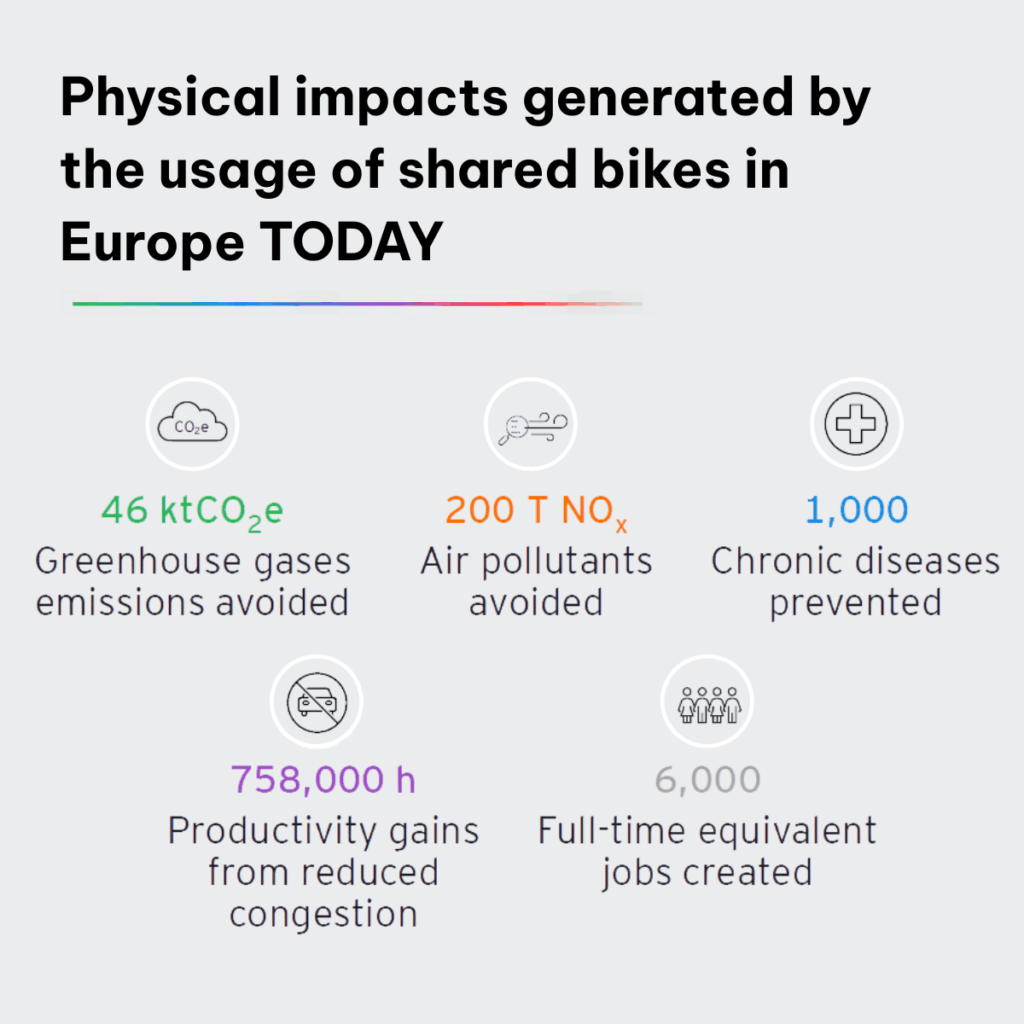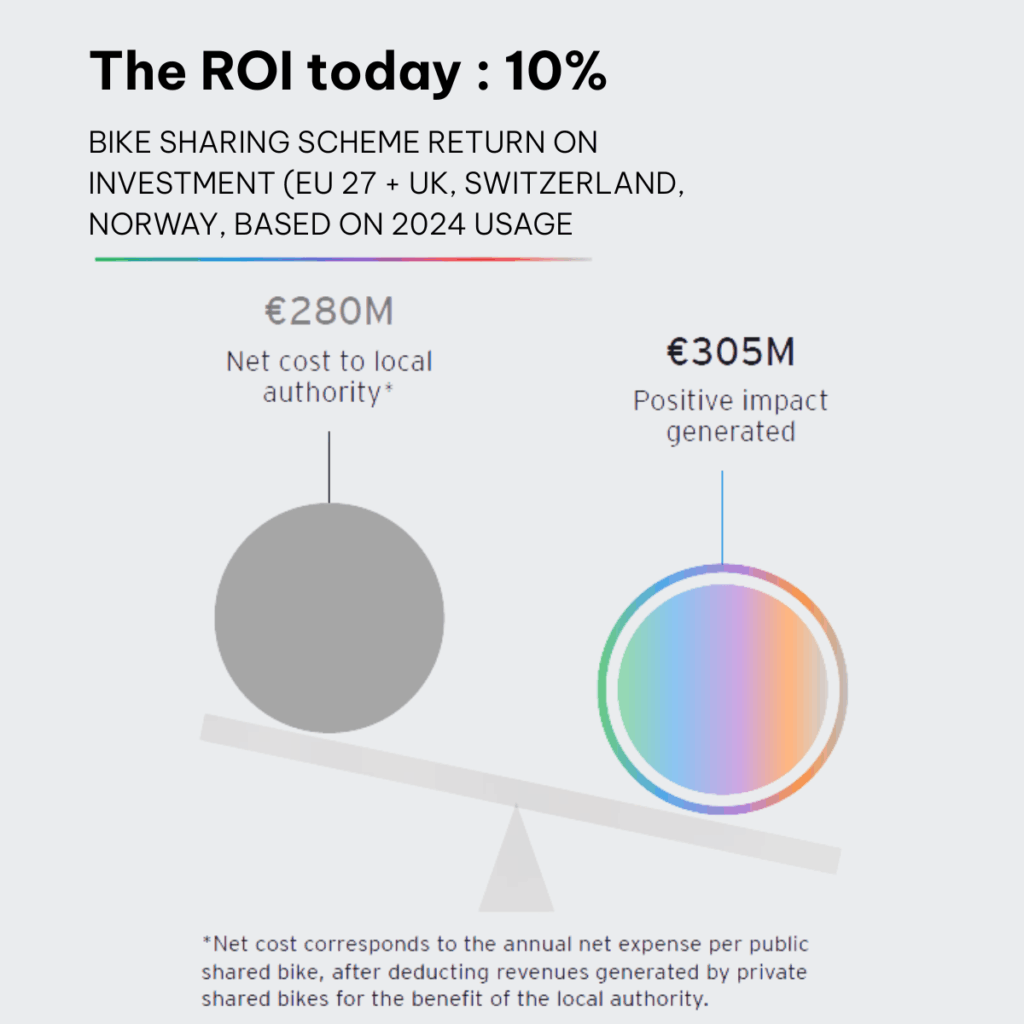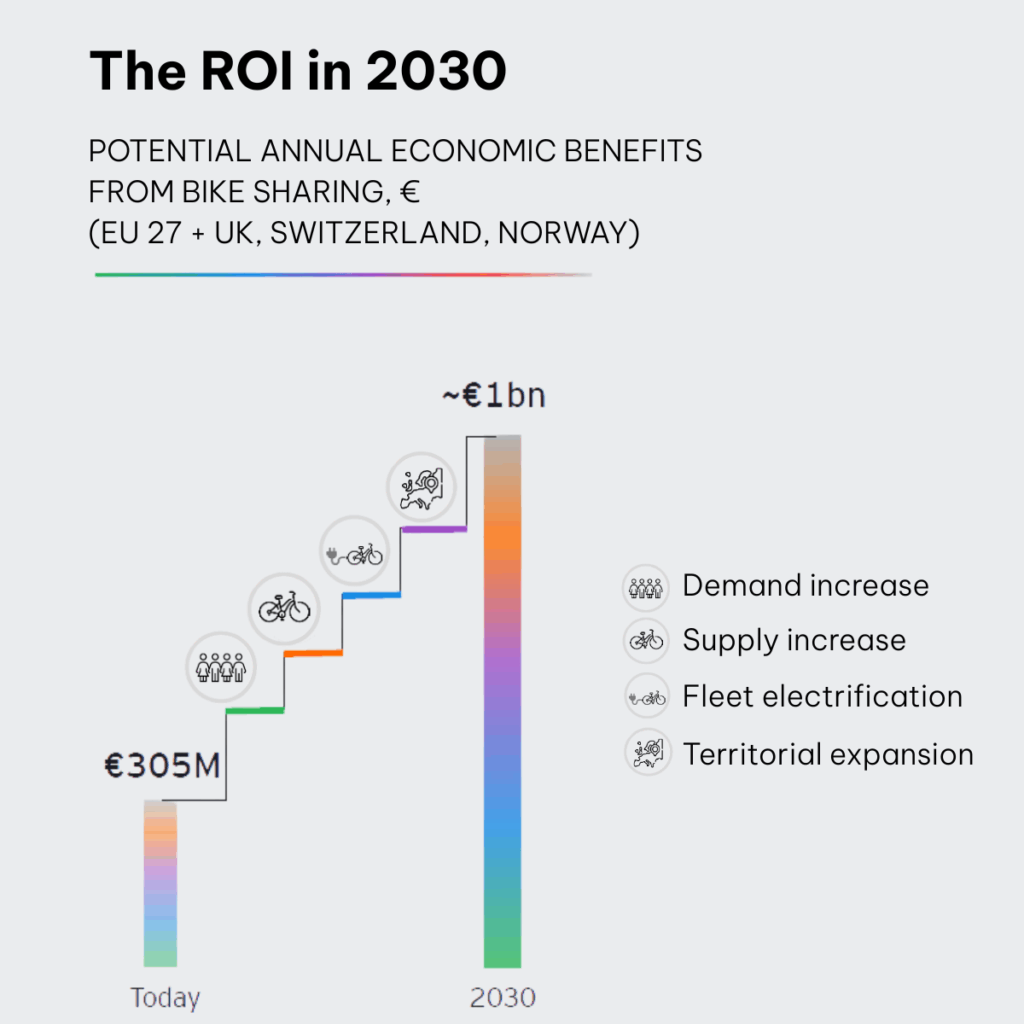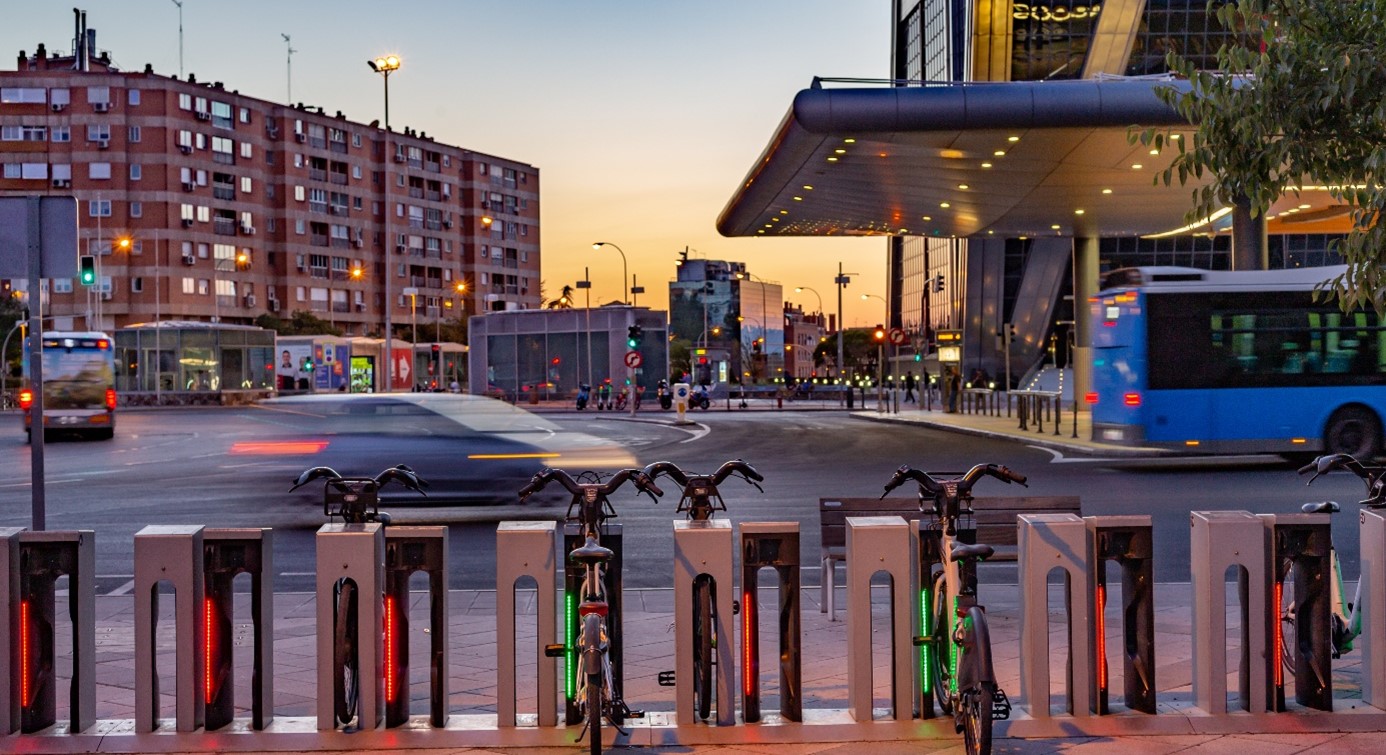At Vélogik, we have often pondered an essential question: how can we measure the environmental and societal impacts of cycling in concrete terms? Thanks to a study on the ROI of bike-sharing services, commissioned by
Measurable and impressive benefits
The study reveals that bike-sharing schemes generate €305 million in annual benefits in Europe. These benefits are not limited to financial savings: they include gains in public health, reduced pollution, job creation and improved well-being.
For example:

- 46,000 tonnes of CO₂ and 200 tonnes of air pollutants are avoided each year thanks to bike sharing.
- 1,000 chronic diseases are prevented, representing €40 million in healthcare savings.
- 760,000 hours of productivity are gained, representing €30 million.
- 6,000 full-time equivalent jobs are supported across Europe.
These figures demonstrate that bike sharing is much more than just a mode of transport: it is a lever for urban transformation.
Already a positive return on investment
Today, every euro invested in a bike-sharing service generates €1.10 in profits, a 10% return on investment.


But this figure could rise to 75% by 2030, if services continue to develop, become electrified, diversify their offerings and expand into areas not yet served.
Nick Brown, CEO of Vélogik UK and project manager for the study, emphasises:
‘For the first time, we can assign a financial value to the benefits of bike sharing, and the results speak for themselves. It’s not enough to simply say that cycling is good for mobility; we need to prove it by measuring the economic benefits for communities and citizens.’
The benefits of bike sharing are sometimes intangible but essential
Beyond the figures, the societal and environmental benefits are just as crucial:
- Reducing regional inequalities: VLS makes areas poorly served by conventional transport accessible.
- Well-being: less stress, less noise, better air quality.
Barriers to overcome in order to maximize impact
Despite the obvious benefits of bike sharing, the study highlights several obstacles that are hindering its full potential.
- Cycling infrastructure often remains inadequate or unsafe, which limits its use for certain groups, particularly families.
- Social acceptability varies depending on the area: in some rural areas or among people who are unfamiliar with cycling, skepticism persists.
- A lack of inclusivity in the equipment offered: bicycles may be too heavy or poorly suited to different body types, making them difficult for some people to use.
Local authorities have a key role to play in overcoming these barriers. They must invest in suitable, secure infrastructure, expand fleets to meet the needs of all users, and fully integrate bike sharing into urban planning by connecting it to other transport networks. Clear, targeted communication about the benefits of the service is also essential to remove barriers and encourage public acceptance.
Conclusion
Bike sharing is not just a simple mobility service: it is a strategic investment for cities. It contributes to a healthier, fairer and more sustainable society. At Vélogik, we are proud to be part of this transformation and to support communities in their transition to carbon-free and active mobility.
Discover the final report of the study


